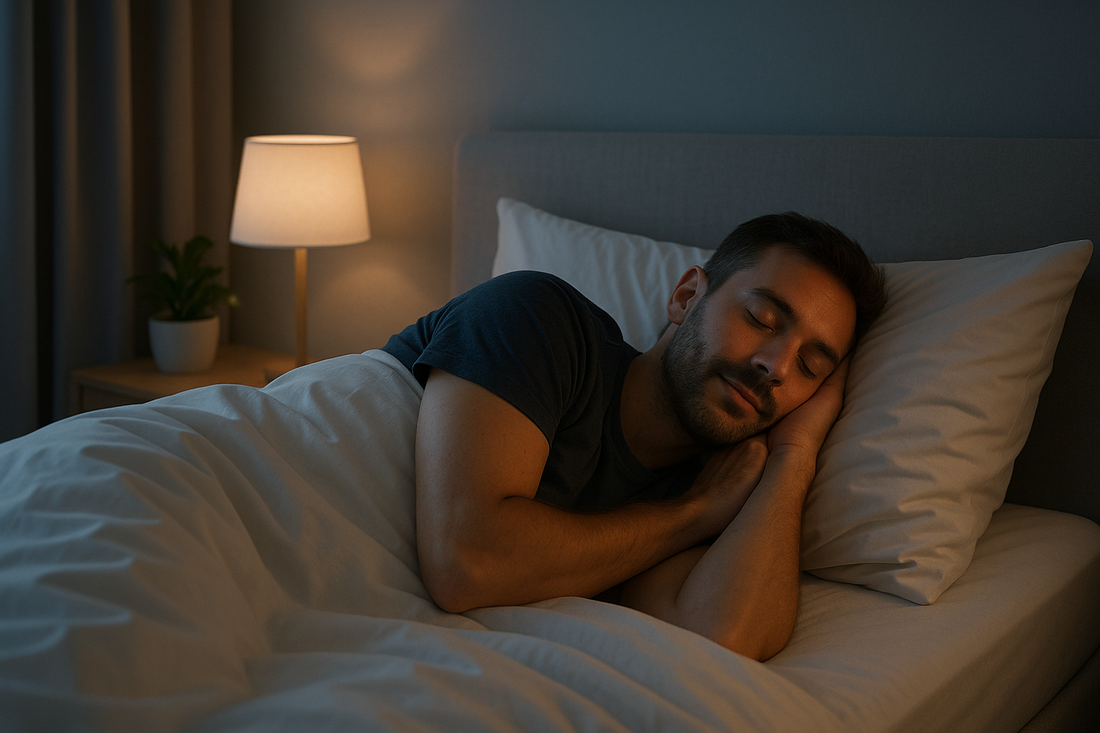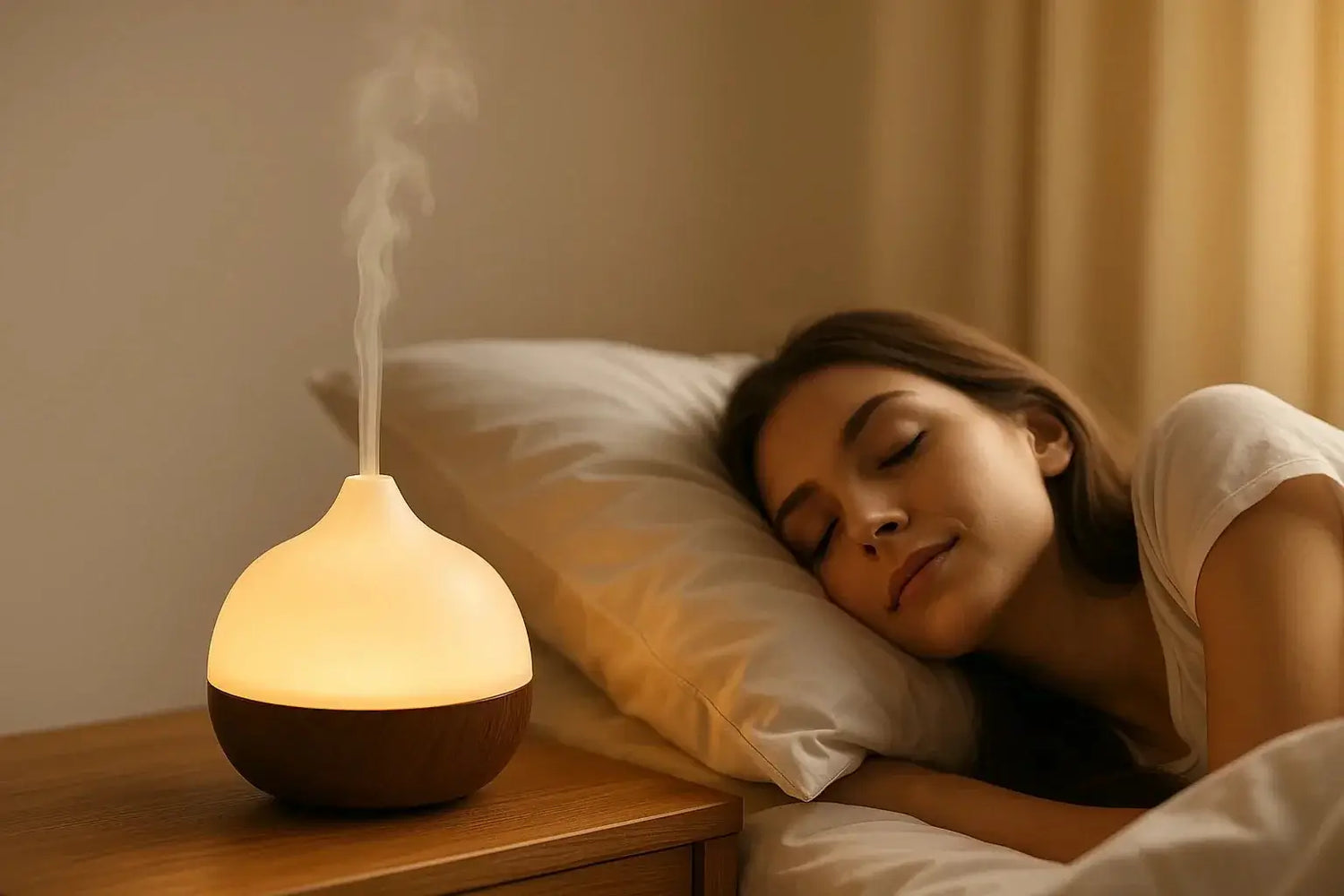
How to Fall Asleep Fast: 15 Proven Methods That Actually Work
Share
Hey there, fellow sleep-seekers! We all know how important a good night’s sleep is, but sometimes drifting off can feel like an uphill battle. That relentless tossing, turning, and counting sheep can leave you more frustrated than relaxed. If you're wondering how to fall asleep fast, you’re not alone, and you definitely aren’t out of options. In this comprehensive guide, we’re diving into 15 proven methods that actually work, so grab your comfy pajamas, and let’s get started on your journey to sweet slumber!
1. 4-7-8 Breathing Technique
First up is the 4-7-8 breathing technique, a simple yet powerful method developed by Dr. Andrew Weil. This breathing exercise helps to calm your nervous system and reduce anxiety, making it easier for you to drift off into dreamland. Here’s how you do it: Inhale deeply through your nose for 4 seconds, hold your breath for 7 seconds, and then exhale slowly through your mouth for 8 seconds. Repeat this cycle for four breaths, and you'll soon find yourself in a much more relaxed state, ready for some quality sleep.
2. Progressive Muscle Relaxation
Have you ever felt like your body just won’t relax? Progressive muscle relaxation is a great way to combat that. This technique involves systematically tensing and then relaxing each muscle group in your body. Start at your toes, tense the muscles for five seconds, and then let them go. Work your way up to your head. This practice not only helps you become aware of physical tension but also signals to your body that it's time to unwind. Many people find it immensely helpful in preparing for sleep.
3. Visualization
Visualization is a fantastic mental trick for those who struggle to quiet their minds at night. Imagine a serene scene, like a calming beach or a beautiful forest. Try to visualize every detail—the sound of the waves, the smell of the sea breeze, or even the feel of the soft grass beneath your feet. This technique can distract you from the stresses of the day and create a peaceful mindset, making it easier to fall asleep fast.
4. Complete Darkness with Sleep Mask
Darkness is crucial for sleep, as it signals your brain to produce melatonin, the hormone responsible for regulating sleep. A quality sleep mask can enhance this darkness. When looking for one, consider trying the 3D Sleep Mask from QuietAura. This mask offers a comfortable fit that completely blocks out any light, making it perfect for sleeping in bright environments or during the day. You'll be amazed at how much a simple sleep mask can improve your slumber!
5. Cool Room Temperature
Did you know that the ideal sleeping temperature is around 60-67°F (15-19°C)? A cooler room helps lower your body temperature, which is essential for falling asleep fast. If your room feels stuffy or too warm, consider using a fan or air conditioning to create that ideal sleeping climate. You might be surprised at how much a comfortable temperature can influence the quality of your sleep.
6. Aromatherapy with Lavender
Aromatherapy is a powerful tool for relaxation, and lavender is at the forefront due to its calming properties. Using a quality essential oil diffuser can transform your bedroom into a tranquil space. The Sleep Diffuser from QuietAura allows you to enjoy the calming aroma of lavender while keeping the air fresh. This scent can help lower anxiety and promote deeper, more restful sleep.
7. White Noise
If silence feels too loud, consider using white noise to mask disruptive sounds. Machines, apps, or even a simple fan can produce a consistent sound that helps you fall asleep fast. White noise creates a comforting backdrop, helping to drown out any disturbing sounds that might interrupt your sleep. Additionally, it can be especially helpful for light sleepers or those living in busy environments.
8. No Blue Light 2 Hours Before Bed
In today's digital age, blue light is everywhere. The screens on your phone, tablet, and computer emit blue light that can interfere with your melatonin production. Aim to put away your devices at least two hours before bed; this will help signal to your brain that it’s time to wind down. Instead of scrolling through social media, pick up an old-school book or engage in a calming activity to prepare for sleep.
9. Optimal Humidity Levels
Have you ever struggled to breathe at night? The air might be too dry. An optimal humidity level (around 40-60%) can make a world of difference. Dry air can lead to respiratory discomfort, making it harder to fall asleep. The 3L Humidifier from QuietAura keeps your bedroom air comfortable and breathable, promoting deeper sleep. Plus, you can add your favorite essential oils to enhance the experience even further!
10. Comfortable Bedding
Your bed should be a sanctuary, and that includes investing in quality bedding. Whether you prefer soft sheets, plush pillows, or a cozy comforter, the right bedding can significantly impact how quickly you fall asleep. Make sure your mattress is comfortable too; if it’s too firm or too soft, it might be time for an upgrade. Don’t underestimate the importance of a good mattress and bedding to your overall sleep quality!
11. Empty Mind Technique
It’s easy to get caught up in thoughts and worries as you try to sleep. The empty mind technique involves acknowledging your thoughts, then mentally placing them aside for later. You can imagine a box where you store those thoughts until the morning. This practice helps you relax and clear your mind, making it easier to drift off quickly. Journaling your thoughts before bed can also serve as a great way to declutter your mind.
12. Body Scan Meditation
Body scan meditation is an incredibly soothing technique that promotes deep relaxation. Lie down in a comfortable position and mentally scan your body from head to toe, noticing any tension and consciously relaxing each part. By focusing on your body, you can become more attuned to physical sensations and ultimately encourage deeper relaxation. This method can help clear your mind and prep you for a restful night’s sleep.
13. Reading with Amber Light
Reading before bed can be a great way to wind down, but not with just any light! Using an amber reading light reduces blue light exposure, making it easier for your body to prepare for sleep. The Amber Reading Light from QuietAura is a perfect choice for late-night reading. It provides a warm glow that keeps your mind engaged but doesn’t interfere with your natural sleep cycle.
14. Consistent Sleep Schedule
Setting a consistent sleep schedule can work wonders for your ability to fall asleep fast. Going to bed and waking up at the same time every day trains your body’s internal clock. This consistency helps regulate your sleep cycle, making sleep feel more natural. Even on weekends, try to stick to your schedule as closely as possible. Your body will appreciate the routine and respond with better sleep quality!
15. Sleep Environment Optimization
Your sleeping environment should promote relaxation. Keep your room dark, quiet, and cool. Personal touches like calming scents, soft textures, and your favorite sleep items can make a significant difference in your ability to fall asleep fast. Consider organizing your space to minimize clutter, which can be visually distracting. The less chaos in your environment, the more serene your bedtime experience will be!
Sleep Mask vs Eye Pillow: Which Works Better?
When it comes to blocking out light, sleep masks and eye pillows serve different purposes. Sleep masks are typically designed to fit snugly around your eyes, providing complete darkness—ideal for those who need a total blackout. Eye pillows often have added weight, which provides a calming pressure on the eyes and can help with relaxation. If you're traveling or need to sleep during the day, a sleep mask is likely your best bet for a quick sleep. For relaxation, consider using an eye pillow in combination with other techniques for the ultimate calming experience.
FAQs
1. How long does it take to fall asleep?
On average, it takes about 10 to 20 minutes to fall asleep. If you consistently take longer, it may be a sign of underlying sleep issues, and it might be worth consulting a healthcare professional.
2. What can I do to stop waking up at night?
Evaluate your sleep environment and try to identify any factors that might be causing disruptions. Sticking to a consistent sleep schedule, practicing relaxation techniques before bed, and ensuring your bedroom is conducive to sleep can help reduce the frequency of nighttime awakenings.
3. How can I naturally increase melatonin levels?
To boost your natural melatonin levels, aim for exposure to natural light during the day and minimize blue light exposure at night. Eating foods rich in melatonin, such as cherries, walnuts, and bananas, can also contribute to better sleep.
4. Are there any foods that help with sleep?
Foods rich in magnesium, such as bananas, almonds, and leafy greens, as well as those containing tryptophan like turkey and dairy, can aid sleep. A light snack before bed, such as yogurt or a banana, can help promote sleepiness.
5. Should I nap during the day?
Short naps (20-30 minutes) can be beneficial if you need to catch up on sleep, but try to avoid long naps that might interfere with your nighttime sleep. If you find yourself napping frequently, it might be time to reevaluate your overall sleep schedule.
So there you have it! Fifteen proven methods to help you fall asleep fast. Remember to incorporate these strategies into your nightly routine for the best results. And don’t forget, if you want to elevate your sleep experience, check out QuietAura’s amazing products designed for ultimate relaxation. With convenient PayPal checkout available, your sleep solutions are just a click away! Here’s to a restful and restorative night’s sleep ahead!

